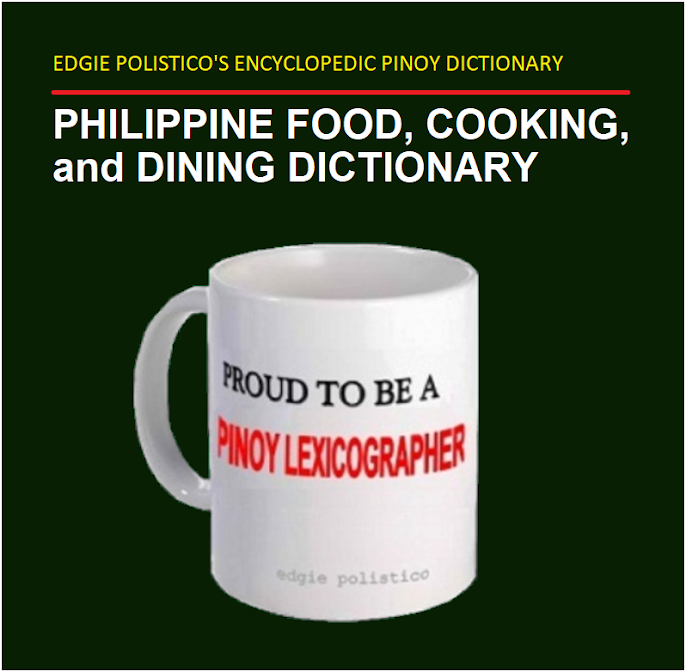taklong – /ták-long/ (Hiligaynon [Capizeño] snail) [n.] forest snail.
Other local common name:
A species of big-sized forest snail found in the woods or forested areas of Capiz province and nearby provinces on Malay island. This snail would thrive in moist places near a river or waterfalls. It lives on trees as this snail is fed with leaves of trees and other plants.
- a.k.a. takrong in Hiligaynon (Capizeño)
A species of big-sized forest snail found in the woods or forested areas of Capiz province and nearby provinces on Malay island. This snail would thrive in moist places near a river or waterfalls. It lives on trees as this snail is fed with leaves of trees and other plants.
They are caught crawling under the foliage and on the branches of trees and other plants. The snail is carrying on its back a dark brown coiling shell.
It looks like kurakol (plant snail) or a big-sized kuhol (escargot).


As food, taklong is collected and boiled in water to make it easy to pull out its meat from its coiling shell. The meat is pried out with a fork or pin.
The meat is cooked into barbekyung taklong (forest snail barbecue) by marinading it in barbecue sauce then skewered on a stick and grilled, or made into guinataang taklong (forest snail in coconut milk), guinisang taklong (sautéed forest snail), or adobong taklong (pickled forest snail). When cooked, it is gummy and chewy like a chicken gizzard.
The meat is cooked into barbekyung taklong (forest snail barbecue) by marinading it in barbecue sauce then skewered on a stick and grilled, or made into guinataang taklong (forest snail in coconut milk), guinisang taklong (sautéed forest snail), or adobong taklong (pickled forest snail). When cooked, it is gummy and chewy like a chicken gizzard.
Personal note
This snail is quite different from kuhol. It tastes bitter and chewy. In my case, I turned squeamish and had a thorough exercise with my jaw masticating the dish. It takes a good combination of spices and seasonings to make it at least enticing. Its bitterness is definitely so strong due to its diet of forest green leaves.
All photos by Edgie Polistico are copyrighted. ALL RIGHTS RESERVED.
If you liked this post, share it.
Let us know your opinion on the subject. Feel free to comment in the comment section, below. It is important for us to know what you think.
Tell us what other topics you would like us to write, share, and discuss.
For more about Filipino food, see this Philippine Food, Cooking, and Dining Dictionary. It is OPEN and FREE.
Continue to follow my blogs. You can also follow and learn more by joining us in our Facebook group. Have more bits and pieces about our kind of food, ingredients, and ways of cooking, dining, and knowing food culture across the 7,641 islands of the Philippines.
Encouragement and enthusiasm are not enough. I also need moral support, prayers, and anything else that can uplift my spirit and keep my good reasons. Keep them coming. All I know is that I am happy with what I am sharing and giving away. If you are pleased and happy with what I am doing, just smile and please share the happiness. Keep sharing and include to share the PHILIPPINE FOOD ILLUSTRATED. I feel energized when my blog becomes one of the reasons why you are happy and smiling.
Edgie Polistico



.JPG)
.JPG)





